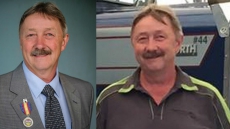VANCOUVER — Doctors who provide assisted death are meeting for the first time since the service became legal in Canada to discuss how some eligible patients are not getting the help they need to end their lives because of confusion over one phrase in the right-to-die law.
Dr. Jonathan Reggler, a family physician in the Vancouver Island community of Courtenay, said he has helped about a dozen people die since last June.
Reggler, a member of the Canadian Association of Medical Assistance In Dying Assessors and Providers, said physicians and other health-care professionals including nurse practitioners are gathering in Victoria on Friday and Saturday to discuss a set of adopted clinical guidelines based on their shared experiences.
The one-year-old law that allows doctors to end the lives of people whose natural death is "reasonably foreseeable" is the subject of a constitutional challenge by two terminally ill women who say they've been denied the service because their death is not imminent.
Reggler said guidelines developed by the association that represents "hundreds" of health-care practitioners providing assisted death across the country include a recommendation to replace the term "reasonably foreseeable" with "reasonably predictable."
Clinicians use the term predictability when assessing the course of a disease based on a patient's condition and other factors including age and frailty, he said.
"'Reasonably foreseeable' is not a term used in clinical medicine," he said, adding 'predictable' allows medical professionals to more clearly understand the law, which he believes has so far been misinterpreted, leading to inequity in services in various provinces.
"There is enough expertise within the profession and particularly within (the association) that we can move away from doctors turning to lawyers to help them understand what it means and start to see it as ordinary clinical practice," he said of medically assisted death.

Reggler said other agreed-upon guidelines include doctors not using rigid time frames regarding prognosis of a patient's condition because that is specifically precluded from the law.
However, he said some facilities have used strict limits on the maximum length of prognosis, denying eligible patients a medically assisted death.
A Health Canada senior policy analyst will also make a presentation at the meeting about reporting requirements and seek input from assisted-death doctors who have found the documentation process too onerous, Reggler said.
Payment for assisted dying services will also be on the agenda, he said, adding there is currently no billing codes for the service that often includes travel time to visit patients who are unable to come for appointments.
"My understanding is that in Nova Scotia, for example, none of the physicians actually carrying out medical assistance in dying have received any funding at all," he said.
Presenters at the two-day meeting will include doctors from across the country as well as lawyer Joe Arvay, whose case involving client Kay Carter resulted in a landmark Supreme Court of Canada ruling in 2015, leading to the right-to-die law.
The top court directed that medical assistance in dying should be available to consenting, competent adults with "grievous and irremediable" medical conditions that are causing enduring intolerable suffering.
There was no requirement that the condition be terminal or that a person be near death.





